Trump carries Reagan’s torch for common sense
Donald Trump may not have Ronald Reagan’s charm, but the two have much in common: when Trump is exposing fads, he’s helping the cause of freedom across the world.
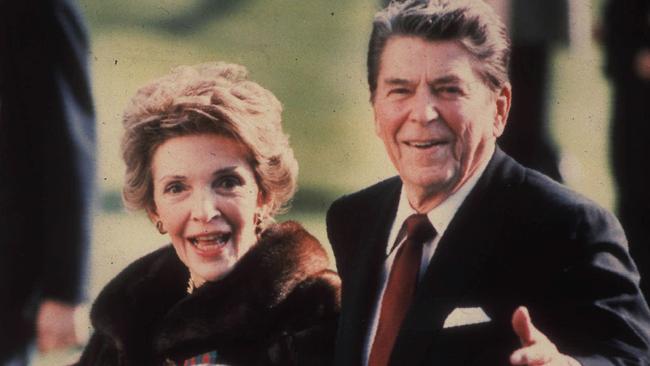
I’ve been reading Max Boot’s book on Ronald Reagan over the summer. The 40th US president was a serious man who had some fun along the way, often at his own expense.
On his birthday in 1986, Reagan said: “It’s true I am 75 today … but remember, that’s only 24 Celsius.”
Politics is a serious business. But like any profession or calling, it can be fun.
Europeans have been upset about Elon Musk trying to interfere in their elections. Making some bleedingly obvious points to European leaders in Munich last week, JD Vance said: “If American democracy can survive 10 years of Greta Thunberg’s scolding, you guys can survive a few months of Elon Musk.”
Foreign interference is more complex, to be sure, but a laugh rarely goes astray. Unless you’re a po-faced European.
Some said Reagan’s gentle humour took the sharp edges off his ideas. I disagree. His humour sharpened his ideas.
Before he was president, at a Labour Day address in New Jersey, Reagan said: “A recession is when your neighbour loses his job. A depression is when you lose yours. Recovery is when Jimmy Carter loses his.”
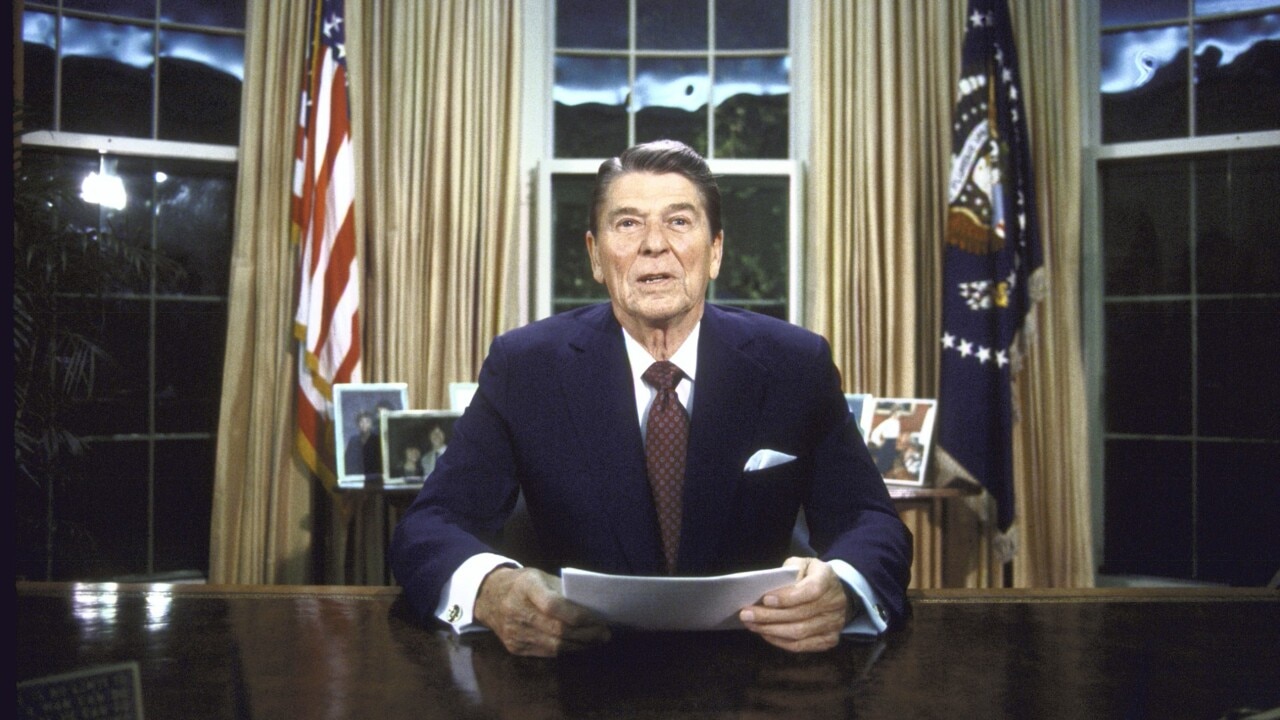
Reagan changed the way we think and talk about the economy. Government is not the solution to our problems, he said. Government is the problem.
His lasting influence could be felt 15 years later when president Bill Clinton said the era of big government was over.
Alas, it’s not over but we must keep trying to shrink the power of the state so that we can reclaim more power over our lives.
The man once dubbed the “amiable dunce” confronted communism with his steely commitment to freedom – and humour. “If the Soviet Union let another political party come into existence, they would still be a one-party state because everybody would join the other party,” he told a gathering of Polish Americans in Chicago in 1983.
I learned some personal things about Reagan from Boot. There was some conflict the US president couldn’t bear.
The man who, standing at the Brandenburg Gate in Berlin in June 1987, told Mikhail Gorbachev to “tear down this wall” couldn’t bear family disagreements. At the dinner table, at home, Reagan would hunch his shoulders, look down and push a piece of carrot around his plate with his fork rather than engage in a family quarrel.
So when Reagan said, in his farewell address in January 1989, that “all great change begins at the dinner table”, I’m not sure it did for him.
Great change begins with great ideas. His ability to convey those ideas was tremendous, lasting.
I discovered that his wife thought he talked too much. Not Nancy, of course. Towards the end of his first marriage, Jane Wyman told friends never to ask Ronnie what the time was. He’ll give you a 15-minute history of the watch, an even longer explanation of how a Swiss watch is made. And you may still be none the wiser about the time of day.
A journalist described Nancy Reagan, when she was next to Reagan, this way: “Nancy composes her features in a kind of transfixed adoration more appropriate to a witness of the Virgin birth.”
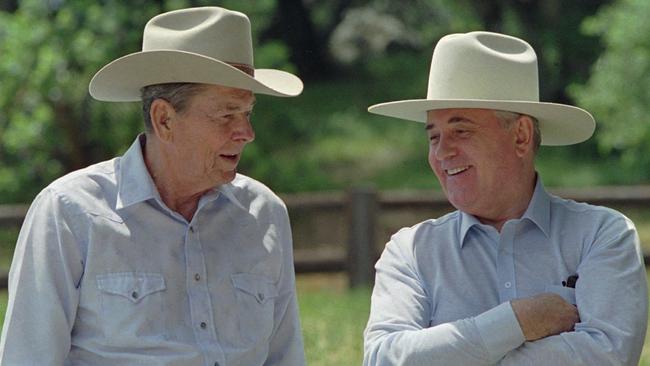
Reagan was far from perfect. When he uttered those famous words in August 1986 – “the nine most terrifying words in the English language are: I’m from the government, and I’m here to help” – Reagan was handing out subsidies to farmers.
His rhetoric outpaced his achievements. But he understood that if you don’t start from first principles, you’re destined to go off the rails. He understood that we shouldn’t fall for fads.
There’s a lesson for us to consider as elections loom. We have our fair share of fads.
What’s the difference between a fad and a principle? A fad can feel good – for a while. The right principle is good – in perpetuity.
Speaking of fads, tealdom may go the way of the Australian Democrats. The teals came into office in a wave of slogans and general voter malaise. This federal election is different. There is plenty of evidence the teals are splintering on core political issues such as tax and national security, and remain united only in their climate activism. Indeed, as reality starts to dawn and the need for a continued role for coal and gas becomes clear, even the most zealous bands of climate activists are not as monolithic as they were.
Educational fads have been harder to dislodge. A fad called the “whole language” theory convinced generations of teachers that kids could learn to read by osmosis, without structure, without learning the sounds that made up words.
Phonics was one of the first issues I wrote about more than 20 years ago. I had seen it work. When my daughters were very small, they were keen to read. So I taught myself how to teach them how to read – using phonics. I used a large set of phonetic cards called Spalding cards.
Phonics was so unfashionable back then that some so-called educators described it as a right-wing plot from George W. Bush. I’m not kidding. The reading wars were insanely political. This nonsense was hurting kids. It stopped because a group of serious educators kept making the case for evidence-based teaching methods.
My eldest daughter is now a high school history teacher in a country public school and a foster mum to a beautiful nine-year-old Indigenous girl. A few months ago my daughter bought a set of Spalding cards to help this divine little girl read better.
Now this little girl loves reading. Loves it. This is life-changing.
Principles require hard work. Fads are easier – they are based on emotion, not reasoning, not evidence. Fads are also soul-destroying, unjust, often divisive.
Take the corporate fads called DEI. Donald Trump is slaying this dragon. In his January 20 executive order he called the DEI fad “an unlawful, corrosive, and pernicious identity-based spoils system”. DEI is baloney, too.
There is no evidence showing that DEI leads to higher profits. The beneficiaries of DEI are women who secure board seats because of their gender and consulting firms that make a motza from perpetuating the myth that diversity is good for the corporate bottom line.
Other fads need to be dismantled, too. Sporting fads that allow men to compete against women – in women’s sport.
Social fads, too, are being questioned, like the overused welcome to country. The voice referendum was a big deal. Here was a chance for the country to reaffirm the principle of Martin Luther King – that we should not treat people differently because of their skin colour.
If you start with a basic principle, all kinds of good things follow. Like this one. A healthy democracy is founded on the rights and responsibilities – and therefore the dignity – of every citizen regardless of their skin colour, gender or other traits. Representative democracy doesn’t mean parliament must reflect every group favoured by the social engineers. Representative democracy is not identity politics. We don’t want or need quotas to dictate the makeup of parliament.
Jacinta Nampijinpa Price is in federal parliament because she’s brilliant. Not because she’s Indigenous. Who better to oversee a new portfolio to give power back to the people by making government smaller?
Drain those swamps, Jacinta.
The left is committed to dividing the country, entrenching victimhood where bigger government is the answer to their grievances. A recent report on multiculturalism to the Albanese government misrepresents this country, shows no understanding of why migrants came to Australia, why they still come.
The report called for layers and layers of more bureaucracy.
I can guarantee the multiculti tsars that no migrant ever came to Australia thinking: “I love this country because there is so much … bureaucracy!”
This silly report called for an expanded role for SBS and the ABC.
I don’t want to fund the ABC’s current role, let alone an expanded role. No matter how much more money it gets, the ABC won’t make room for conservatives. Intellectual diversity at the taxpayer-funded ABC is dead.
There’s another principle for us to champion: freedom of speech. This is a tough one right now. But that’s precisely when we need to defend freedom of expression – when we loathe what’s being said. But let’s be clear, there is no right to say things that incite violence.
The Labor government committed the biggest sin of any government – failing to keep Jewish Australians safe from threats of violence. And when Jews aren’t safe, neither are the rest of us. Two simple changes to the Criminal Code should have been enacted 18 months ago.
We need to free businesses, big and small, from the stranglehold of ideology so the country can thrive. Ideology is lowering our standard of living.
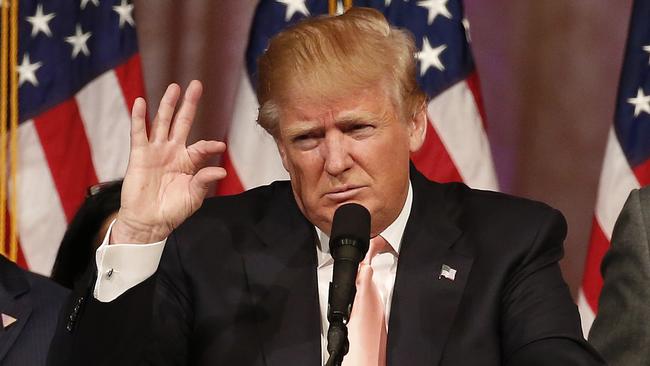
Electricity prices were on average 25 per cent higher in December 2024 compared with the same month in 2023. Before the last election, Anthony Albanese promised Australians that our household power bills would come down $275 by 2025. He promised it 97 times.
Last month, Woodside Energy boss Meg O’Neill said that after a decade of political opposition to the fossil fuel industry, it’s now too late to avoid economically damaging gas shortfalls in Victoria.
The result is that Victoria, Australia’s most gas-dependent state, will have to import LNG – adding to price pressures. “Ideology has stood in the way of sensible energy investment,” she said.
Another principle that needs constant defending: the rule of law. The law and all its punishments and protections must apply to everyone equally. Victim-centric justice is a legal fad undermining the presumption of innocence.
We need to defend our history to pass on these principles to our children.
I believe there is momentum for more common sense, aided by popular opinion, to solve many difficult problems. Trump is undeniably part of this momentum. He’s not everyone’s cup of tea. The great John Howard told me more than once that Australia could never see the rise of a man like Trump. The party system would weed out an A-grade narcissist, he said.
I can think of an A-grade narcissist who became prime minister. In fact, more than one.
Trump doesn’t have Reagan’s charm, his boundless optimism, his grace or gentle sense of humour, but Trump has this much in common with Reagan: when he’s exposing fads, replacing them with principles and common sense, he’s helping the cause of freedom – across the world.
For Reagan, freedom was the most noble achievement for any society. Freedom, Reagan said, “is never more than one generation away from extinction”. It’s not passed “on to our children in their bloodstream. The only way they can inherit the freedom we have known is if we fight for it, protect it, defend it and then hand it to them with the well-fought lessons of how they in their lifetime must do the same.”
It’s that simple.
This is an edited version of an address to a WA Liberal Party event in Perth this week.





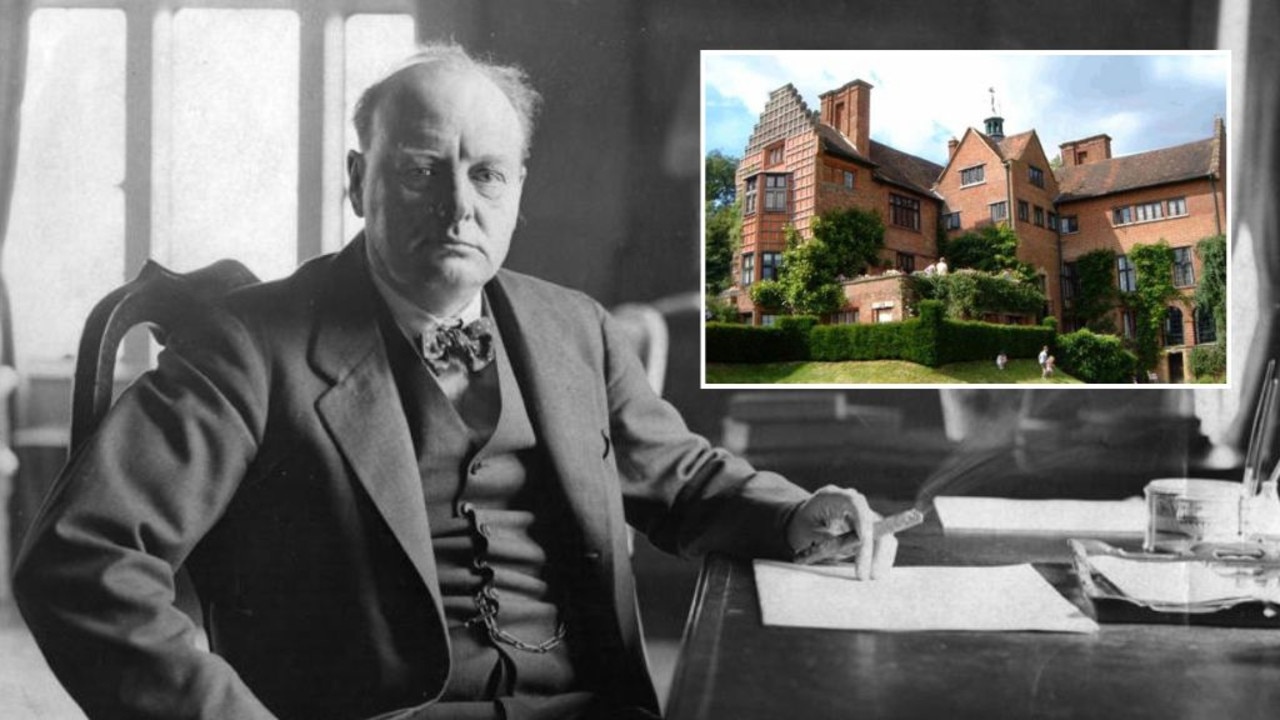

To join the conversation, please log in. Don't have an account? Register
Join the conversation, you are commenting as Logout